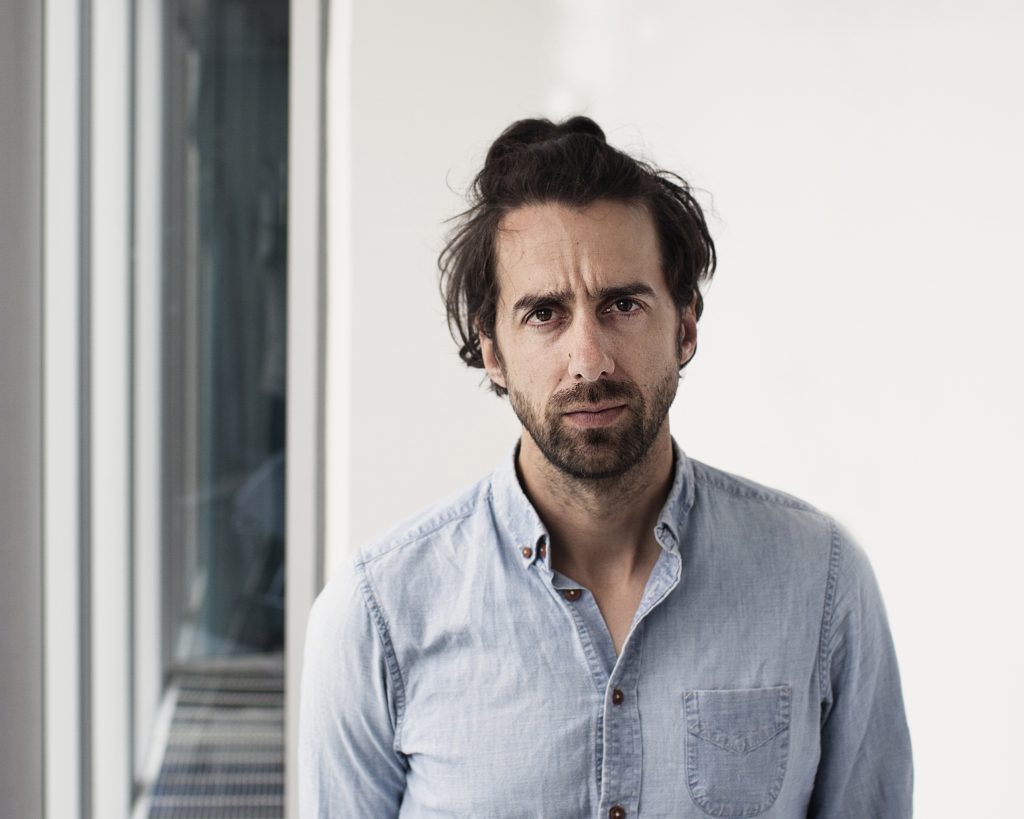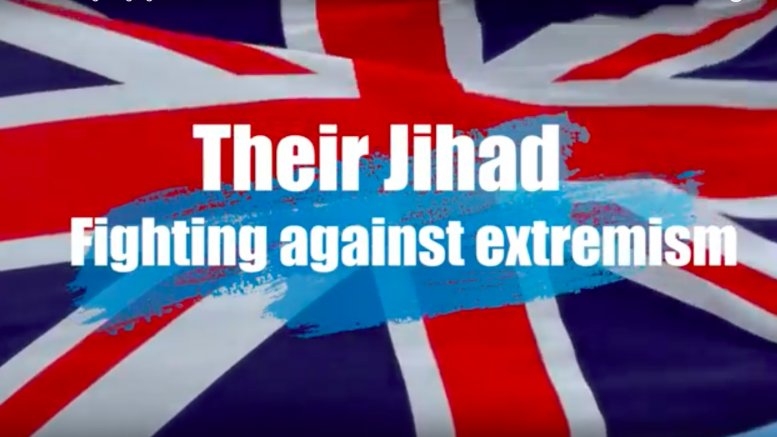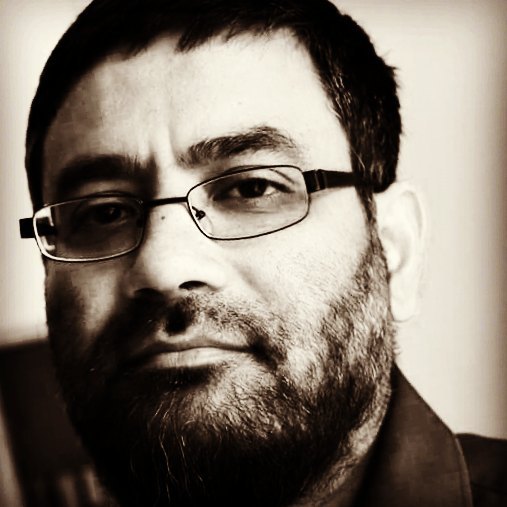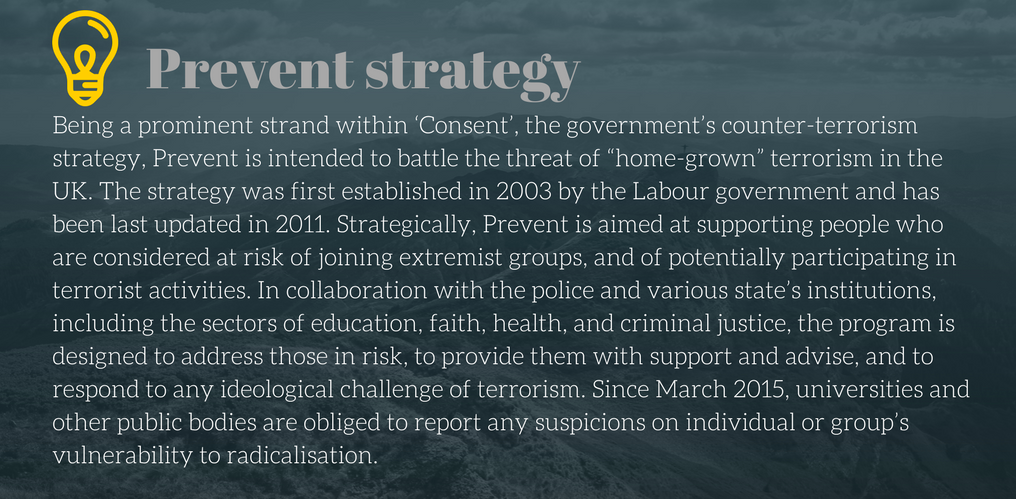A journey in and out of extremism is inherently a human tale of passion, power, doubts, and regrets. Reflecting upon their personal stories, Manwar Ali, Usama Hasan, and Yasmin Mulbocus, former British extremists, discuss the root-causes of radicalisation, the role of universities within the journey, and their views on Prevent strategy.
By: Adi Cohen
A heavy tear is travelling along his cheek, reaching slowly to the long greying beard, his eyes are wide open. “I was blinded by this ‘cause’ thing”, he explains, his voice shivers, as he’s apologising once again for getting too emotional. At the age of 58, Manwar Ali, otherwise referred to as Shaykh Abu-Muntasir, reflects upon some 15 odd years he now describes through a bitter sense of naivety and regret. Ali, an Ipswich resident, today the head of the Muslim charity, Jimas, was previously known, to some extent, as the father of Salafia in the UK, and a spirited preach and fighter of Islamic Jihad.
It was ill-information and ignorance, as Ali recalls, that roped him to a puritanical path of Islam, coated by a prominent Salafi methodology. He says: “I became well-known for vigorously going around the country and telling people to not only follow the Quran and the Sunnah, the way of the prophet Mohammad, peace be upon him but to revive the idea of Jihad”. During the 1980s-1990s, Ali was a somewhat leading figure in UK’s Jihad circles, having been responsible for motivating, recruiting, raising funds and connecting thousands of people to the ‘Islamic cause’. Jimas, at the time, has been used to out-script the ideas of an Islamic state, Salafism, and jihad, as the Muslim Brotherhood philosophy sketched those. Sporadically, Ali himself would have gone to fight Jihad, for short periods of time, in both Afghanistan, Kashmir, Bangladesh and Burma.
Having been born in Bangladesh, experiencing war and lost from a young age, have, perhaps, constituted a breeding ground to the influence of the Muslim Brotherhood ideology, in which Ali came across later as he’s moved to the UK. A passion for making justice, addressing the suffering of people around the global Muslim community, was boldly inked on Jimas’ agenda at the time. This expression of politicised Islam has, in fact, connected the Islamic principle of Dawah (charity) with Jihad, having been interpreted as the fight for the oppressed and struggling Muslims.
Empowerment through division
In the fundamentalists’ lens, the suffering of Muslims around the globe is abstractly translated to a clear division of ‘us and them’, according to Ali. ‘Us’ being the Muslim “Ummah” (community), and ‘them’ being the Western world. This divisive message has been employed as an essential mantra of empowerment and a useful instrument of recruitment to groups like Jimas, as to Ali. He describes an ideological demonisation of non-Muslims, and often of non-Salafists, along with the systematic perpetuation of collective grievances as “a narrative of victimhood”. The same mantra has also been echoed through the journeys of Usama Hasan, a former member of Jimas, and of Yasmin Mulbocus, a former activist at Al-Muhajiroun circles.
“As a child”, tells Hasan, drifting nostalgically to his childhood bedroom, “I had a map of the world showing the Muslim population in each place”. A green marker, as he recalls, has highlighted the Muslim populated areas which were colonised by Western countries. Hasan, similar to Ali, describes a youthful desire for making justice in the world. “A lot of it stands from a feeling of defeat; of how we’ve been wronged and oppressed”, Hasan explains. He adds: “There was a lot of anger at that, and the feeling of taking it personally as it’s your people who’re being oppressed, and they need justice. So it was partly personal and partly political. And it was justified, I suppose, through religion.”
Hasan was born in Nairobi, Kenya, and grew up in East London from the age of four. Having been raised by fairly strictly religious and well-known scholar parents, Hasan grew with a particular devotion to Islam, learning and memorising the Quran as early as the ages of 5-11. Hasan, who’ve joined the group as a school kid, describes Jimas through profoundly spiritual terms. “It was about recapturing the original spirit of Islam. About the purification of belief, theology and practice”, he explains. He stresses that the exercise of Dawah and Jihad within the group had a lot of positives to it too. “Jihad means a struggle, and it’s a very noble teaching within Islam. It has a spiritual inner Jihad, where you fight your demons, you try to be a better person. Also, jihad is against injustice around you, wherever you see it.” Part of the group’s activities was focused on the empowerment of Muslim youth and women, and a contribution to the Muslim community and to their integration within the local society. Yet, the group’s strict approach to Salafism was also regularly expressed through hate preaching within Muslim circles, which has occasionally manifested in violence. As such, Hasan characterises them as “both radical and extremists”.
A natural relation to suffering
Relating to others’ grievances have been somehow natural to both Ali, Hasan, and Mulbocus since each of whom has accommodated a different form of internal suffering. To Hasan and Ali, it was predominantly the experience of racism in Britain, a feeling of exclusion perhaps, which has dissolved with the powerful feeling of unity in which the group has provided. As to Hasan: “Growing up in this country as a browned-skinned, ethnic minority person, in the 70s’ and 80’s, and even through to the 90s’, we’ve experienced a lot of racism.” He explains that further sympathy followed bitter experiences as such to others who’re being oppressed elsewhere. The group, uniting individuals around passionate ideas and activism, has provided a precious sense of belonging, and more importantly, of power.
This sense of power, primarily, was the magnetic force who’ve lead Yasmin Mulbocus to a four years’ long journey into the path of extremism. It was a feeling of empowerment she recalls as she describes the first time she had covered in a veil. “A symbol of purity”, she expresses in apparent excitement, “For once I wasn’t perceived as a slag. I wasn’t perceived as dirty; I was purified.” Mulbocus, a Hounslow resident, today in her 40s and a mother of two was born in London to a Pashtun father and a Guyanese mother. A rather peculiar strength sparks from her, as she unfolds a difficult story of a childhood in foster cares, and of being the object of mental, physical and sexual abuse to the uncle she used to believe was her father.
She was only 15 when she had faced the court, having no one around her to support, nor even to believe her story, including her biological father she’s just recently met. The case was dropped, supposedly for lack of evidence, and so was Mulbocus’ hope. Her prior strength was now replaced by clinical depression and two failed attempts to suicide. At the age of 16, while living with her biological father, Mulbocus has met her husband in an arranged marriage and moved out to start a new home together, and potentially a fresh start.
At the age of 18, after giving birth to her first child, Mulbocus has started reaching out to religion, finding in Islam spiritual empowerment and peace of mind. She has educated herself through books and was thrilled by the healing sensation in which prayers would have given her. Along the Islamic studies in which she’s started taking, Mulbocus has begun to attend Hizb ut-Tahrir talks at the local college, an international Pan-Islamic organisation which promotes the ideology of an Islamic state. “It was then when Al-Muhajiroun came about”, she recalls, describing the joy in which these classes have brought about, the answers she could finally find in this described utopia of the visionary Islamic caliphate. Since 2005 and to these days, Al-Muhajiroun is banned in the UK, being defined as terrorist Salafi group, which is linked to international terrorism, homophobia and anti-Semitism.
At the very first class in which Mulbocus has attended, the lecturer discussed the capital punishment in which those who commit rape and other forms of sexual offences would face in the ideal Islamic state. She memorises: “It was music to my ears; it literally lit me up.” At these days, as she recalls, Mulbocus used to fantasise on meeting the Caliph of the Islamic state, being able to share with him her personal story, the one in which the rest of her world has rejected.
“When my second daughter was born, the wives of the Al Muhajiroun then established a circle. That’s when I became part of the group.”, Mulbocus discloses. Overall, Mulbocus participation in the group has occurred within the years 1992-1996. In parallel, ongoing struggles and suffering were taking place in Bosnia, Kashmir, Somali, and Palestine, which she felt associated with not only as part of the Muslim ‘Ummah’, as she was taught, but due to her familiarity with the sense of being powerless. “For me, it was protection; this is my new identity, I’m a sister, I’m a queen now” She expressed passionately. “What was so key about Al-Muhajiroun was that it gave us political and social activism for once in our life.”
As part of the group, Mulbocus and her female colleagues would be busy educating themselves about the movement’s ideology and arguments, which were later exercised through public interactions, in either street stools or organised events and rallies. While discussing their work, she suggests: “People say we were manipulative. I think we weren’t manipulative; we were very passionate. We were fed up with being let down, about the status quo. We wanted a change. I think that’s why this utopian state was so attractive.”
An institutionalised propaganda?
Both Ali, Hasan, and Mulbocus, have claimed to have had a passionate and sincere will to bring about justice. Rising from personal and collective grievances, each has found his path, at the time, being righteous, noble, and empowering. Their passions were initially nurtured by what they can only now describe as propaganda, which took an active place in the educational institutions in which they’ve attended.
Ali, a former student at Kingston Polytechnic (today Kingston University), memorises the sense of togetherness within the university’s Islamic Society he was part of. At the time, it was members of the Muslim Brotherhood who were “in charge” within the Society, who’ve “deeply influenced” him, to his words, and facilitated in him the ideology of an Islamic caliphate. Through the university’s Society, he explains, they were “taking the advantages of the rights and freedoms to preach, to organise, and to do what you like.”
As a former president of the Islamic Society at Cambridge University, Hasan recalls a positive exposure to the diversity of Islam, along with the recruitment of other students to the group’s activity, as well as to their fight of Jihad abroad during summer breaks. Their focus, he claims, was nevertheless spiritual, rather than on Jihad.
Yet, the case was different in London’s universities he has later attended: “in London, you had groups like Hizb ut-Tahrir, which their rhetoric was very militant.” He describes a growing focus on the Islamic caliphate’s ideology and Jihad. Some students he comes across at the time, from both Imperial College, UCL, Kings College, and City University, have unfortunately employed far more extreme paths and agendas, and have later joined terrorist groups such as Al Qaida.
Redemption
Today, fighting against radicalism, the three are daring to look back at their past, to share it, and to review it with a critical eye. Using their own experience, they are willing to contribute the Muslim community, each in his way, and to dare others to be challenged too.
“I work seven days a week”, shares Ali who works as an educator of what he regards as the “true teaching of Islam”. “Part of it is repentant, part of it is atonement, and part of it is penance. Most of it is because I’m now driven by my convictions to do the right thing.” Hasan, currently the head of Islamic Studies at the counter-extremism think-tank, Quilliam Foundation, works in educating young men and drawing those away from radical paths. Mulbocus, an active member of London’s Muslim community, provides training, mentoring and intervention work in the context of radicalisation, as well as around cases of child sexual exploitation.
Withdrawing from the path of extremism typically compels a meaningful process of soul-searching, and necessitates the bravery to doubt and to question what you believed was the truth. Mulbocus shares: “There was this thing I thought was ‘reality’, but it wasn’t. And then when you open up, and you’re analysing the situation around you, it wasn’t as bad as they’ve made it.” To her, leaving the group was essential to feel like herself again, to reconnect with her true Islam, to be a mother again; to be Yasmin. To Ali, it was some significant occurrences which have piled up and made him questioning. He shares some unforgettable meetings with young kids in Pakistan, some of whom were only 13 years old. The kids would have described themselves as fighters, often sacrificing their lives in such a young age, while to him, they were pure victims of recruitment, who were avoided having “a life of normality” as they wished.
To Hasan, it was September 11th attacks in the United States which have led him eventually to the exit door. He felt torn, as he describes, and shocked at his response to it at the time: “So when 9\11 happened, this was celebrated in Islamic circles as an attack on America, attack on the core Western superpower. And therefore it was justified as a kind of revenge for all the American and the Israeli and other Western’s intervention of the Muslim world, which we had followed for the last 20-30 years.” Puzzled from the clash of the cause he’s supported and the ethics he couldn’t personally compromise; Hasan has started a journey of re-examination. “Some part of me was also celebrating the 9/11 attacks, as an attack on America. But the other part knew that I’d never subscribe to attacking innocent people or killing of civilians. That was never part of our ethos.”
https://www.youtube.com/watch?v=NMPMi5D2ozU&feature=youtu.be
Preventing extremism in UK Universities
The subject of extremism in UK universities have recently reappeared in the public domain following a report by The Henry Jackson Society in February. Followed by further media publications, the report revealed suspects on a campaign of the National Union of Students’ (NUS) to be a ‘vehicle for extremist interests’. The reported campaign, “Students not Suspects”, was first established in 2015 by the NUS, to combat and protest against the Government’s counter-extremism policy, Prevent. According to the counter-extremism think-tank’s report, the campaign is linked to a number of questionable “Islamic fundamentalist groups”.
The issue of radicalisation within UK universities has also been addressed by The Sun’s recent exposure earlier this year, who’ve reported on ISIS’ ongoing recruitment from within Britain’s education institutions. According to a government’s report (June 2011), referring to British students’ engagement in terrorist-related activities: “More than 30% of people convicted for Al-Qaida-associated terrorist offences in the UK between 1999 and 2009 are known to have attended university or a higher education institution.”
https://twitter.com/Man_In_RBlack/status/967321150891192320
Prevent strategy has long been subjected to criticism over its possible violation of free-speech, and its potential alienating and discriminating consequences towards the Muslim community in Britain. The issue is particularly highlighted in the context of universities and other educational institutions in the country, which are typically expected to celebrate a diverse debate and to cherish the marketplace of ideas. Explaining their immense opposition, Students Not Suspects have referred to Prevent on the campaign’s website as “racist and Islamophobic”. They expressively accuse Prevent of “targeting the Muslim community whilst eroding civil liberties for all as part of a clampdown on political dissent and undermining the space for critical discussion in our universities, colleges and schools.”
Humanising the battle against extremism
The journey out of extremism for both Ali, Hasan, and Mulbocus was necessarily a process of broadening horizons, of reflecting inwards and of willingly sharing their stories with others. In addressing the paradoxical subject of Prevent, their approaches are somewhat different. Mulbocus and Hasan argue the importance of distinguishing between radical and extremist ideologies and personas. To Mulbocus, who sympathises with the feeling of discrimination which is often associated with the current form of Prevent, the strategy should be led by the Muslim community. She suggests: “We need to work in partnership, at a grassroots level rather than having a top-down approach.” In her view, formers of all types of Jihadi groups should be united for such cause: “We need to put all of our differences aside. We have to work together in unison, to build one kind of convention.”
Ali, who’ve given up the extremist path in the year of 2000, regards the then-new Terrorism Act to have been an important catalyst. He says: “sometimes governments have to act and to establish laws where they give you this gentle push, the shock, the ‘go to’ direction.” Repeatedly, he wonders out loud where were all the scholars and elders who’ve supported and encouraged him all along the way, rather than showing him the right direction out.
To Hasan, the opposition of some universities’ Islamic societies to Prevent is somewhat odd. He says: “they should be supporting Prevent; they should be supporting the government’s attempt to stop Muslim and far-right people to be drawn to terrorism.” In his view, the anti-Prevent campaign is an expression of mainstream anti-establishment, which carries a “divisive message”. Furthermore, amazed by the number of students that “naively” follow Students Not Suspects’ campaign, he adds on to the allegations of their links to some questionable extreme characters. He claims: “Some of that (campaign) is led by clear terrorist sympathisers. People who are very close to Al Qaida or their ideology.” The campaign’s representatives did not give a comment.

Encouraging a culture of free speech, and the challenge of radical ideas. Featured and Credit: Jamie Bartlett
In his recent book, “Radicals”, Jamie Bartlett, also the author of the best-selling book ‘The Dark Net’, the method of governmental intervention in the marketplace of ideas was addressed as “proving to be very messy”. In an interview, he expresses particular concern regarding the scale of governmental interference in which Prevent is prone to allow further. “We start with Islamists; we move to far-right, we already had some incidents with the far left. Where does it stop?” While opposing the idea of not-platforming, he suggests aligning universities’ regulations with the state’s laws and conventions regarding the limits of free speech, rather than imposing further limitations. “The worry that I have is that it becomes that all ideas that aren’t what we currently accept as right are not necessarily banned, but they’re reviewed badly, and people are then afraid of thinking and talking about them.”
In according to 2017’ government statistics, approximately 850 Brits have joined in recent years to the fight of jihad abroad, around half of those are in Syria and Iraq. Evidentially, many of whom are graduates of various UK educational institutions. While the threat of radicalisation is present, the debate over the battle against it and its ethics- is more crucial than ever. The stories of Ali, Hasan, and Mulbocus describes more than their specific journey of in and out extremism, but a human journey of radical discovery, passion, and regret. Today, their Jihad is no longer about a violent struggle nor an instrument to achieve political or religious goals. Rather, it’s the aftermath of meaningful introspection, a struggle to be better individuals and to help to create a better community. It is, whether intentionally or not, a personal contribution to humanly preventing others from the path of extremism.





